- A martial arts hobby turned into a successful martial arts business
- When to get help from a marketing expert?
- How the ‘Partners OnRamp’ helps boost martial arts schools
- Quitting your day job to become a full-time martial arts instructor
- Tapping into a pool of knowledge through Martial Arts Media™ Partners
- And more
*Need help growing your martial arts school? Start Here.
TRANSCRIPTION
GEORGE: Hey, it's George Fourie. Welcome to the Martial Arts Media™ Business Podcast. Today, I'm doing one of my favorite episodes to create, which is a case study. A case study documenting a client's journey from when they started working with us to where they are now.
Today, I'm speaking to Amanda Saliba and Wayne Ardley all the way from Melbourne. And I love this episode simply because Amanda is so committed to achieving big goals, and same as Wayne, still in the workforce, positioning out of that going full time into the business. And in the time that we've spent working together, they've increased their income with an additional $200,000 over the last 12 months.
What I love about this is that we zoomed out with this journey. You know, we love to talk about marketing on the show, attracting the right students, increasing sign ups and retaining more members. And sometimes the emphasis is on getting more students, but we all know there's more to that, right?
There's the retaining, keeping the students, which is the biggest part, really. And well, you can't have one without the other. So this case study really documents the journey of staying with the course, you know, not looking for the quick fix, doing the work.
You know, we are on coaching calls every week. Amanda's always on the coaching calls. There's lots available, Amanda's always on all of them, and does the work, implements, makes the refinements, and really commits to the journey. And that's really what it takes.
So I love doing this interview. You are definitely going to get a lot of value from this so head over to martialartsmedia.com/137 if you'd like to download the podcast transcript and the resources mentioned in this episode. And that's it. Let's jump in. Amanda and Wayne, welcome to the Martial Arts Media™ Business Podcast.
WAYNE: Hello.
AMANDA: Thanks for having us, George.
GEORGE: Cool. So I wanted to bring you guys on the show, and this is one of my favorite interviews to do because we get to talk a bit about a customer journey working together and the awesome results that you guys have managed to do over the last 12 months, which is really exciting and I look forward to diving a bit more into the details on that. But just before we kick things off, if you don't mind sharing just a bit of an intro, who is Amanda? Who is Wayne and what do you do in the martial arts space?
WAYNE: What do we do? We run a club or gym, depending on what terminology you want to use in Bacchus Marsh in Victoria. We primarily focus on Brazilian Jiu-Jitsu, Krav Maga. We also run a little side program called KravFit, which is just more of a high-intensity sort of workout.
So it gets a little bit away from the martial arts space, but into the fitness space. But using martial arts techniques and things to just give that quick 30-minute high-intensity program.
AMANDA: And we do that for adults and for children as well. From the age of 3, we have a little ninja program for 3 to 5 year olds, and then we go all the way through to adults.
GEORGE: Love it. So what got you into what you do into the martial arts space and the different styles?
WAYNE: Well, that's a long question. I don't know, have we got enough time for that one? Well, both of us are long-term martial artists, I suppose you could say. I certainly started when I was probably around 14 in Taekwondo, moved to karate, and moved to Thai kickboxing, boxing, through a number of different programs.
About 20 plus years ago, I started Brazilian Jiu-Jitsu. I've been doing that one ever since. That's sort of my real passion. I also studied and trained, got instructor publications in a number of other styles, including Ray Flos, Night Fighting System as an example.
Kali, Filipino Martial Arts, trained as an instructor many, many years back for over half a decade with one of your compatriots from South Africa, Rodney King and the Crazy Monkey Defense Program. There's probably a long list, but the primary things for like 20 plus years, probably the Brazilian Jiu-Jitsu and basic striking, whether it be Krav Maga or boxing Kickboxing for myself.
AMANDA: For me, I started when I was 17, and I did Muay Thai for over a decade, competed in that, then moved into Crazy Monkey with Wayne. And then when I was 34, I started going into Jiu-Jitsu. And three years ago, I took up Krav Maga as well. So I've been doing this for a couple of decades now.
WAYNE: She's won, I don't know how many Australian titles in Jiu-Jitsu now. So she's doing really well.
AMANDA: And that too.
GEORGE: I've seen those awards coming up.
WAYNE: So no, we're just really both, I suppose, really passionate about martial arts. And obviously, our main thing is how we use it as a vehicle. It's not about training champions, although we do have a number of people who compete and compete quite well at a high level.
It is about how we make people's lives better through martial arts. And I think that's pretty much what we're both mostly passionate about. How can we change and help people?
GEORGE: Love that. All right, so we've been working together for I think just over 12 months, right?
AMANDA: Yes. September 2021.
GEORGE: There we go. So, just over 12 months, and you got some great results, but I just want to break down, just to process what got us to that and we'll speak a bit more about the journey of how we've gotten to when we had that first conversation. What did you want to achieve and, and what problems were you facing in the business at the time?
AMANDA: So we met you through our ClubWorx seminar, so through our CRM. And you did a seminar there, and I was really interested to hear about marketing just because I knew that I wasn't doing it very well, and I needed some help in that area. So at that time, I was still working two jobs, and this was something that I thought if I wanted to be able to do this full-time, that we needed more members and that we needed to attract more people into the business.
So once we got people to the business, it seemed okay, once they were at Phoenix, but prior to that, just getting them there. So community awareness and then when you popped up, I was very interested immediately and I was thinking, we have to log onto this, and you shared some fantastic information on that seminar or podcast, whatever, however you want to explain it, which led me thinking that we need more information, and then the discussion with Wayne, of course, to contact you further.
WAYNE: We took it a little bit further back, I suppose you could say we pretty much run it really more as a hobby, so that we basically had training partners, so to speak, really, and had people to train with and it made a little bit of money on the side, but it was not at the time certainly not running as what we would call a business as such.
It was more, much more of a hobby. And, that's sort of, Amanda was the driving force that decided it's time to turn it into something that's a bit more than that, and make it grow. That's where we actually, where we ended up doing the ClubWorx, just to try to get better at doing things.
And then, of course, doing the podcast with yourself via ClubWorx which was quite fortuitous.
GEORGE: Cool. So at that time, business was going, was a bit of a hobby, but there's obviously this passion. So what was the big goal for you at that time? Where did you want to take the business?
AMANDA: We just wanted more numbers. We realized what we were doing was not going to be, was not getting enough people into the doors. So we needed to attract people to us. And what I thought we were doing in terms of marketing turns out that I was not doing that. So I realized I needed some help. And lucky enough, Wayne actually got us onto ClubWorx, which is how, how we found you.
WAYNE: If people found us, they generally stayed. We've got people that have been with us for a long time, but nobody knew we really existed, I suppose. We just did not know how to market ourselves. We put thought just putting a couple of Facebook posts out there every now and again will do the job. So obviously we had a lot to learn.
GEORGE: Gotcha. So what did more numbers mean to you? Like, if you were able to get more numbers, what would be the impact on the business and you personally if you were able to, to do that and get that growth?
AMANDA: So I suppose, it would be a transition from going to what we considered a hobby to a career. And even though we love what we do, we need it to be financially viable for us to be thinking we can do this, and only do this full-time and focus our full energy and passion into it.
So it was that transition between our hobby and then saying, “We're doing this full-time.” That would be the impact on our immediate life, I suppose. Because, you know, I had two or three jobs, and Wayne worked full-time as well, so it was going to be a big shift in our lives.
WAYNE: We were devoting a lot of time already to the Club or the gym in particular at that time. And we were starting to invest a lot more money. New mats, new facilities, tried to always improve.
And it was just getting that we were outlaying a lot of money and we thought we actually need to make some more money if we want this to keep working and grow so that we can justify keeping it going as well, let alone taking it the next step, which is, of course, is becoming full-time careers for us both.
GEORGE: 100%. I mean, it's great if you have a martial arts hobby and you’ve got a lot of friends that do that as well, you know, just lay the mats out on the garage, and it's great when it's a hobby, but when the hobby is training with other people and you're taking on the expenses for more people to train, there's, there's got to be, the money's got to make sense to be able to, to continue, right?
WAYNE: Oh, definitely. And then you've got the time commitment as well, even just as a hobby, you have to be there. If you've got a class running certain times each night, you have to be there. And that certainly interferes with other parts of your life as well. So, these are all things you've got to weigh up. And at the time, it was just getting too big that we had to make a choice whether we grow it or almost scale down. Obviously, we decided to grow and turn it into a business empire.
Let's not go that far yet, but certainly grow it into something that could support us both as well as provide us with what we want out of a club or a gym, which really is something that's constantly evolving. And, we want a world-class type training facility with the best trainers, and that's sort of where we're, sort of… That's what we aim for. And obviously, you have to make money to be able to provide those things.
GEORGE: 100%. Let's shift from the implementation of things. So we started working together. What were the first pivotable things that you implemented that made the biggest difference right in the beginning?
AMANDA: Which was, for us, we just went straight into your OnRamp. So I followed that program every step of the way. If there was something in that OnRamp, I was there and I was doing it. All I did was do that to the Tee and that changed us in an instant.
And the three of us had a conversation, of course, and it was about even pricing, how we were underpricing, and trying to change our mindset about value. And what we're providing is a requirement or is valuable, and we can charge that. So changing our pricing structure, which to me was like, who's going to pay that?
Who's going to pay that money to come and train? And then I started thinking about it, and then what we're providing and the experience of Wayne alone in coaching. I was thinking, “No, we are worth it.” And within our community, we have the most experience by far. So I was like, “No, we can charge that,” and changed our mindset to say, “We are worth all of that and more.’
So having those conversations with you and you just saying, “No, that's not good enough.” And restructuring our pricing as well, which was part of our OnRamp and the initial consultation with you.
GEORGE: So I have to ask, right, because what you've just said is like the biggest obstacle that a lot of people struggle with, so much time invested into martial arts, all this experience, and then a lot, a lot of school owners really struggled with this and really just undervalue themselves.
Sometimes it's from a hierarchy of martial arts leaders that are, you know, don't make money or whatever the case is, and you almost feel like you're pressured to fall under this same structure. Or it's just feeling that it's a bad thing to charge too much. There's so many things that come up with this, and so I just wanted to hammer home that point.
Is there anything bad that happened when you raised your prices and started charging what you are worth? And I'll say what you're worth because it's not just about raising your prices, it's about delivering the service that goes with it. Did anything bad happen?
AMANDA: No, we've got more people joining.
WAYNE: In fact, I actually would pick a small point with what you said, and I would suggest that now that I know what we've learnt from you and looking at the market and learning about business, I probably, I think we would probably still be undercharging to be honest, given what we're offering, the facilities, the training, the coaching, the experience.
I believe we're probably still under-valuing ourselves. And it's something that we need to probably keep working on. It certainly wasn't eyeopener, up to having a few conversations with you about that and then putting it to the test.
AMANDA: And since then, we've also increased our prices again. So within 12 months we offer a, like another package as well, and we've got people joining that package.
GEORGE: Love it. All right, so let's wrap some numbers around that. So what outcome have you achieved with that? I think it's good for us to zoom out, right? Because sometimes we always talk about marketing and we're getting this many students and this many students, but then there's always the conversation not being had and that's numbers falling out the back.
So, over the time that we've been working together, what difference has that made between going through the OnRamp and the pricing? If we had to wrap some numbers around that.
AMANDA: Well, if I could go back a little bit, which was before we met you, we were only offering free trials. So the idea that someone would pay to do a paid trial seemed inconceivable in my mind. And I thought, there's no one, no one's going to pay to do a paid trial, but yet, people were just literally signing up to do a paid trial, which was like, this is crazy.
Which changed my whole view on marketing and that people would pay for a trial, whereas people don't see value in something if they're not paying for it. So when we started with you back in September of 2021, we had 67 members. Moving forward now to October of 2022, we're at 170 members. So that's an increase of 266% in net revenue in just over 13 months.
GEORGE: Very, very cool. There was a dollar amount that you mentioned as well, with the increase.
AMANDA: So I think it went…
WAYNE: One of the beautiful things of ClubWorx is it graphs and keeps all these stats for us, which is really handy to keep. So sorry, we're just going to look that up for you. In the meantime, I will point out that I thought you were a snake, some charm salesman there at one point.
How on earth would people pay money for a trial where they can get it free? I think that's just crazy, but you proved me wrong. So, thank you for that.
GEORGE: Just, just to add to the trials, I mean, I think there's definitely a place for free trial and, and I think it's always important to not focus just on the trial because a trial should never get in the way of just someone that wants to join either. But sometimes, I think markets are conditioned, you know, as a business owner you think, well, if I give it away for free, there's no obstacle.
But free normally comes with an agenda, right? Free feels like, well, especially if it's like short free, you're going to think, “Well, it's, it's really just that I've got so much time to try this thing and then I'm going to have to sign up.” And so sometimes it just feels like there's too much risk, almost free. Where, when it's paid, it takes.
There's value in the thing that you're paying for in the program even if it's just for a short time. And it feels a little more complete, that I'm actually paying for this and I'm going to get value from just what I'm paying for as well.
WAYNE: No, it's certainly.
GEORGE: Go for it, Amanda.
WAYNE: Give us, give us the numbers.
AMANDA: So within 13 months, we've gone up 190,000 in net revenue per year.
GEORGE: Love it. So what does that mean for you in the business and for you personally?
AMANDA: So for me, I am full-time at Phoenix Training Center. So doing the marketing side, the CRM side, running the back end, so to speak, as well as doing some coaching in the evening. We've been able to expand our business. So we've gone from one facility and extended that, so we've got another facility right next door as well.
So now, we're able to have two spaces going plus a gym, building a therapy room, and having a pro shop room being built as we speak. So our business and, and it's not just about the business, so to speak, it's about our lifestyle moving forward in the future, which is going to significantly change. And we can see this as easy to see now what the potential that we have now that we're in this position already.
WAYNE: And just being able to offer so much more. And as I said earlier, we really wanted to grow the facility. Even though we're in what you would almost call a country town in Victoria, it's not quite, it's just on the outskirts of suburbia. But, to provide what I would try, I wouldn't class it yet as a world class facility, but we're on the way to that where the facilities are just constantly improving.
You'll be struggling to find a better facility outside of some of the big places around the world. So we're… That- that's one of the big goals there. And this is allowing us to do that. People certainly walk in, they go, “Wow, this is good when you compare it to everywhere else around us.”
GEORGE: That's awesome. All right. Anything else to add on that? How are you feeling about all that? I mean, that's like a big moment and I recall getting the Facebook message from you saying, “I've got some good news to share with you and sharing the numbers.” How does, how do you feel about that and where you're headed?
AMANDA: I think we feel like we've accomplished something that seems like in our mind, I, I sort of put it too, like I needed… We've got the facility, but we've got the spark, and I just need some to add a little bit of fuel and we're going to be taking off.
But I just didn't know how to quite get there, and you were sort of like the missing link that I felt like we needed. Because, you know, we've run businesses before but not like this. We know that we needed help and for us, I felt like you were the person that we needed to help us move forward and to get these results.
And there's no way I don't see how we would've gotten them without you and the support of Partners.
WAYNE: Realistically, we're, we're martial artists first and foremost. And like a lot of martial artists, we probably thought we knew a little bit about business, but we didn't, certainly didn't know about media and marketing and all those sorts of things. So it was a real eye-opener to realize how wrong we'd been with what we were doing.
And it was just that following the OnRamp course was sort of mind-blowing in that respect of how to do things properly. I think that's what a lot of martial artists probably need. We certainly needed that help. And I imagine that most martial artists would. We devote all our time to how to choke people and all that sort of stuff, punch them in the head.
GEORGE: The good stuff.
WAYNE: Probably too many punches in the head, so, but it means at the end of the day, we can't specialize in everything, and that's where you, you need to go to a specialist in something to get better at it. That's what we got. So we're pretty happy with that. This is just the start, George.
GEORGE: That's, that's awesome. For sure. I want to say thank you, but you guys did the work and implemented without that drive, nothing happens.
WAYNE: We actually decided early on that we're just going to follow your blueprint to the letter. It made it easier that way we could blame you if it didn't work as well. But we just followed the blueprint to the letter.
And again, not knowing any better, I think that was the best thing. We didn't try to read too much into it and said, this is what the blueprint says, let's just do it. And then we… I would often say to Amanda when she'd bring something to me and she'd been working on some advertising or whatever material and she said, “What do you think?” And I said, “Well, what would George say?”
And I'd look at it because, and, and I start… We both started to learn what you would say when we were to send something to you, “Oh no, this is, this is this, or no, this needs to be fixed or no, that's got to be at that angle and you've got to have… what's the offer?” So things like that, your little saying Georgisms.
But, in the end where I would just say to Amanda, “What would George say?” I better go and change that. And it works.
GEORGE: Oh, that's great. Georgisms.
WAYNE: Yes.
GEORGE: I'm going to have to check if that's, that's a real name that's available for one day when I'm famous. Alright, awesome. So if you could finish this sentence, we almost didn't join because…
WAYNE: Stubbornness on my part thinking that we could do it ourselves.
AMANDA: So thinking that we couldn't spend more money and that we couldn't afford it, thinking that we couldn't afford to invest in a coach even though we knew that we needed it, but thinking that we can do it ourselves. But like I said before, you were what we needed.
GEORGE: All right, awesome. What's been your favorite part of working like with me and within the Partners group?
AMANDA: You and all the other martial art owners, because I haven't really missed many of those meetings. The Hour Power that you run twice a week and then with the additional ones that you also run. I haven't really missed many and being accountable and if I get stuck within a problem, there's nearly someone in the group.
I've never gone to a group where they're like, “Oh, no one's experienced that.”
So the experience within the group and the knowledge of the group like we are… and I am very, very grateful for, for everyone in a way, sharing and saying, “How about doing it like this?” Or, “I've been through that, try it like this.” I'm not only grateful but, but proud to be a part of it.
WAYNE: The group is both knowledgeable but also inspiring. When you see what a lot of members of the group have achieved and what they've been through and as I and Amanda alluded to. The issues that they've faced that we've brought up to the group and they go, “Oh yeah, I've done that before. No, don't worry about that one.”
And just… it does give you a sense of purpose. I suppose to hear these people talk and listen to again, what they've been through, what they've done, how they've succeeded, and where they're now. And you sort of want to emulate that and give you that impetus or the drive to, to follow through and do, achieve what you want to achieve as well, what we want to achieve in this case.
And there are some really nice people, we've met some really great people and we've caught up with them outside of the group and chatted to them and it's been really good.
GEORGE: That's so cool. I see you guys jetting around the country and meeting up with other members. That's awesome. Last question, Who do you recommend Partners to and why?
AMANDA: I would say anyone that got a martial arts business and that if you think that you are not where you want to be and you want to do this full time, you need to join Partners because it's not just about George, it's about the power of the group and what the group gives back to you as well as you giving back to them.
WAYNE: I think anyone really who's passionate about martial arts and wants to grow it and turn it into a career for themselves, definitely because it's… as I said earlier, you can't be an expert at everything and if your expertise is in martial arts, you're probably lacking in other areas like marketing, media, building websites, all these other things that the group provides the solutions for and helpful.
So no, it's really good to, for anyone who's a passionate martial arts instructor, most definitely join up.
AMANDA: With the group, I feel like it… there's a level of comfort as well. I think when I'm there I feel like I can ask anything to the group because they've probably been through it already and I think they're going to give me not just their level of experience and knowledge, but it just feels warm within the group to be like, “Okay, I can go to this and I've got a problem or an issue or whatever,”.
They can give me a solution there and then too, because it's, it, it's live and it's interactive. And Wayne can't be there at all of them of course, because he, he, he's, he's working as well. But hopefully in the near future he won't have to do that either.
WAYNE: That's the plan.
GEORGE: So on that plan, I'd love to have you guys back on the podcast and have another chat. What is the goal that we're going to celebrate on the next podcast? Let's, let's make it… let's cement it in.
AMANDA: Look, once we get to 200, so another 30 more members, and I can't see Wayne going back to that job.
WAYNE: It's hard to justify because of the workload… and this is one of the things we've learned through this, it's certainly not just turning up and taking a class, there's a lot of back-end. There always was. There's programming and all that sort of stuff for what was going to be taught, how it's going to be taught, all that sort of thing.
But when you're not the only instructor on the floor and you've got multiple classes going and you're dividing things up and you've got different levels, training at different places, so you've got training instructors to deal with as well. So you've got to coach them on how they're going to coach, plus all the different stuff in the background for writing that up. Plus all the stuff that Amanda is doing with the marketing and managing all that sort of thing.
But as a number, although Amanda said 200, I reckon next time we talk, I want to be looking at least 250 preferably 300 members.
GEORGE: Right. Done. Should we put a time and a day into it?
AMANDA: Originally when I had a vision with you. So we sat down for 10 minutes. You and I, we wrote through setting some goals and I've still got it in my three-year plan, so to speak. And in 12 months, our plan was to have 140 members, which was on average two per week, and we're now at 170, so we're smashing our own personal goals. And in two years it was supposed to be 250, but I can do well…I believe that we will be able to beat that.
GEORGE: Love it.
AMANDA: So creating goals and making them short term and then hitting them all the time so it doesn't seem so daunting is, for my mind, it works for me. So short-term goals to long-term goals, breaking them down, having a clear vision, and then just going for it.
WAYNE: And hopefully, by the next podcast we'll be a little bit more relaxed because this is actually quite daunting as well.
GEORGE: We'll just have to have you on more often. And then it's… everybody knows I've got an edit button because I need to be edited the most. So it's all good.
Amanda, Wayne, thanks, thanks so much for being on and congratulations again, love watching your success evolve and, really look forward to catching up again and chatting about the next milestone.
WAYNE: Thank you. Looking forward to it as well, George.
AMANDA: Thanks, George, and thanks for everything you've done for us.
WAYNE: It's been really good.
GEORGE: Thank you.
WAYNE: Bye-bye.
GEORGE: Thanks so much for tuning in. Did you enjoy the show? Did you get some value from it? If so, please, please do us a favor and share it with someone you care about. Share it with another martial arts school owner or an instructor friend that might benefit from this episode.
And I'd love to hear from you if you got some good value out of it and you just want to reach out, send me a message on Instagram. My handle is George Fourie, G-E-O-R-G-E, last name, F-O-U-R-I-E. And just send me a message, and I'd love to hear from you if you've got some value from this.
And last but not least, if you need some help growing your martial arts school, need help with attracting the right students or increasing your signups, or retaining more members, then get in touch with us. Go to our website, martialartsmedia.com/scale, and we've got a short little questionnaire that just asks a few questions about your business to give us an idea of what it is that you have going on.
And then typically from that, we jump on a quick 10, 15-minute call just to work out if or how we can be of help. Not a sales call, it's really a fit and discovery call for us to get an idea if we can be of help. And that's that, we'd love to hear from you and I'll see you in the next episode. Cheers.
Enjoyed the show? Get more martial arts business tips when you subscribe on iTunes, listen on Spotify, or watch and subscribe on Youtube.



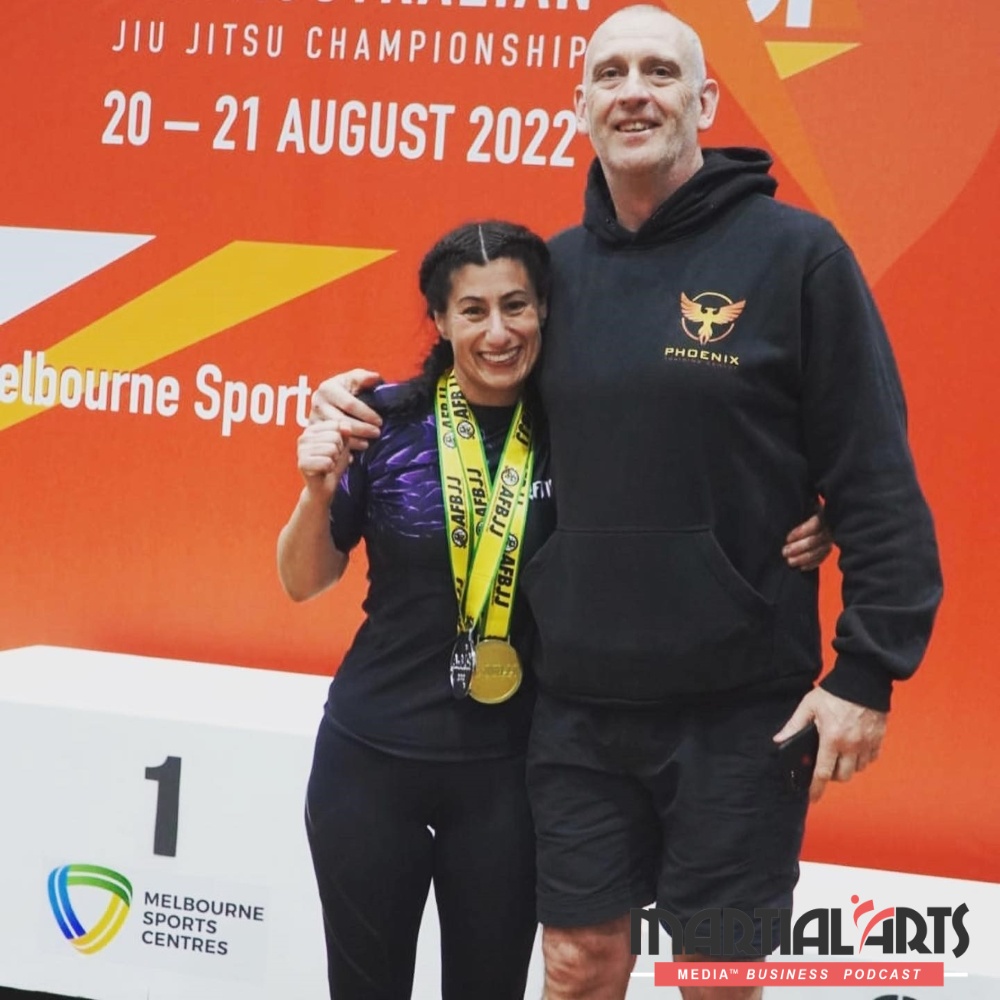
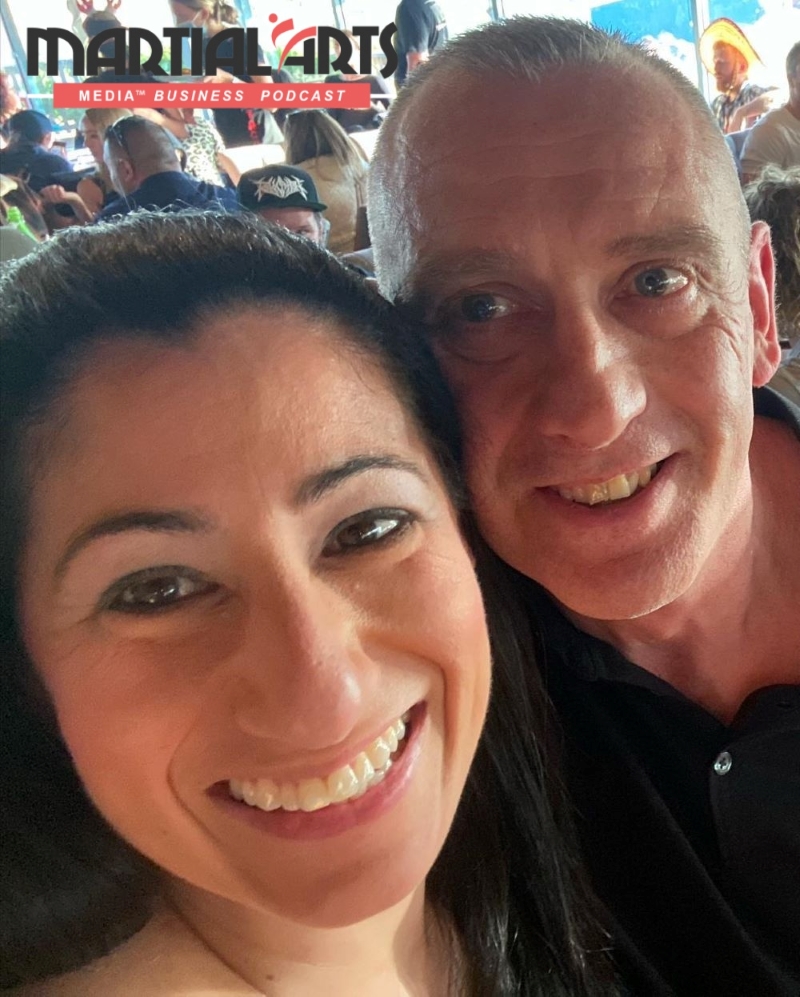
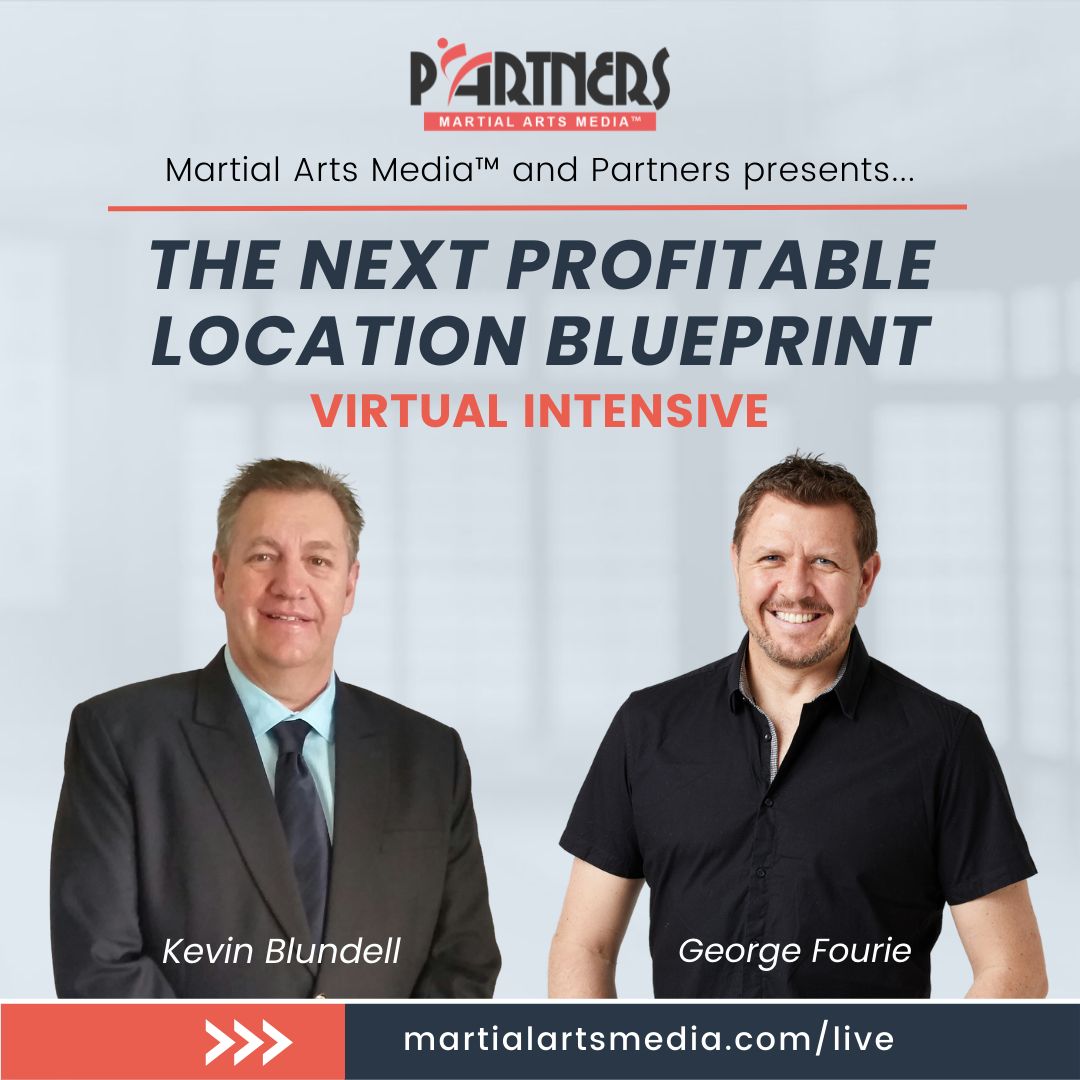
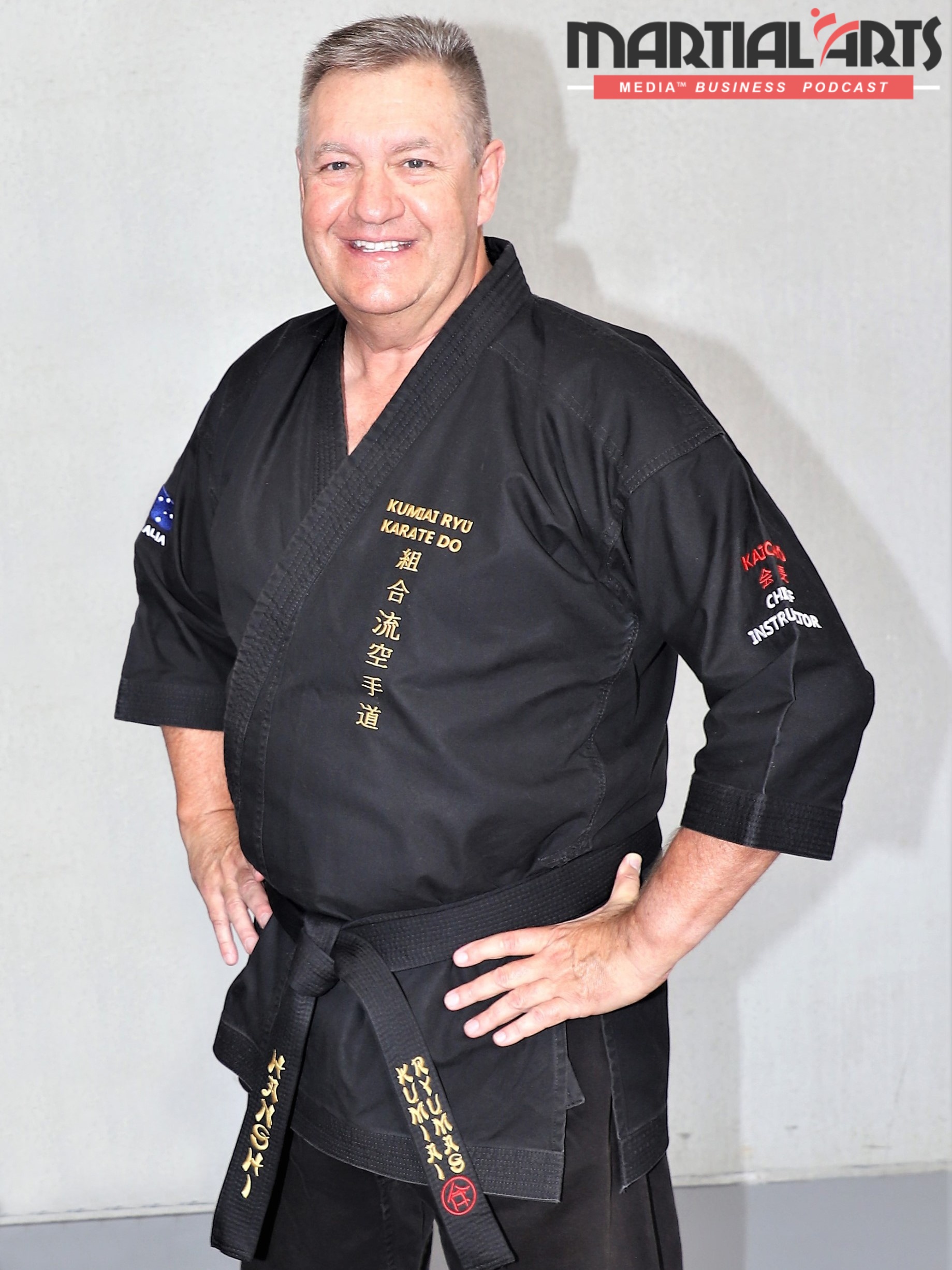
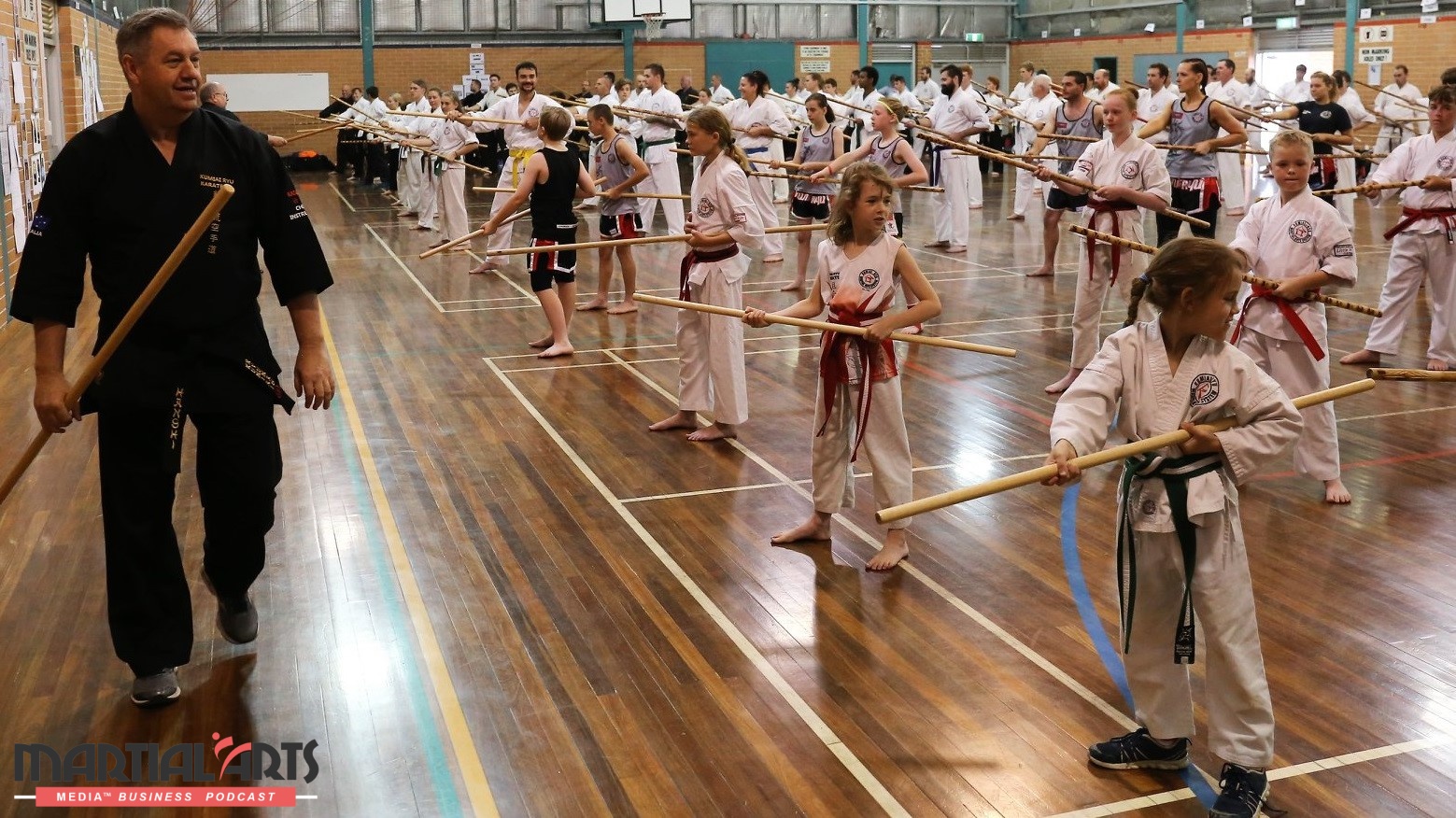
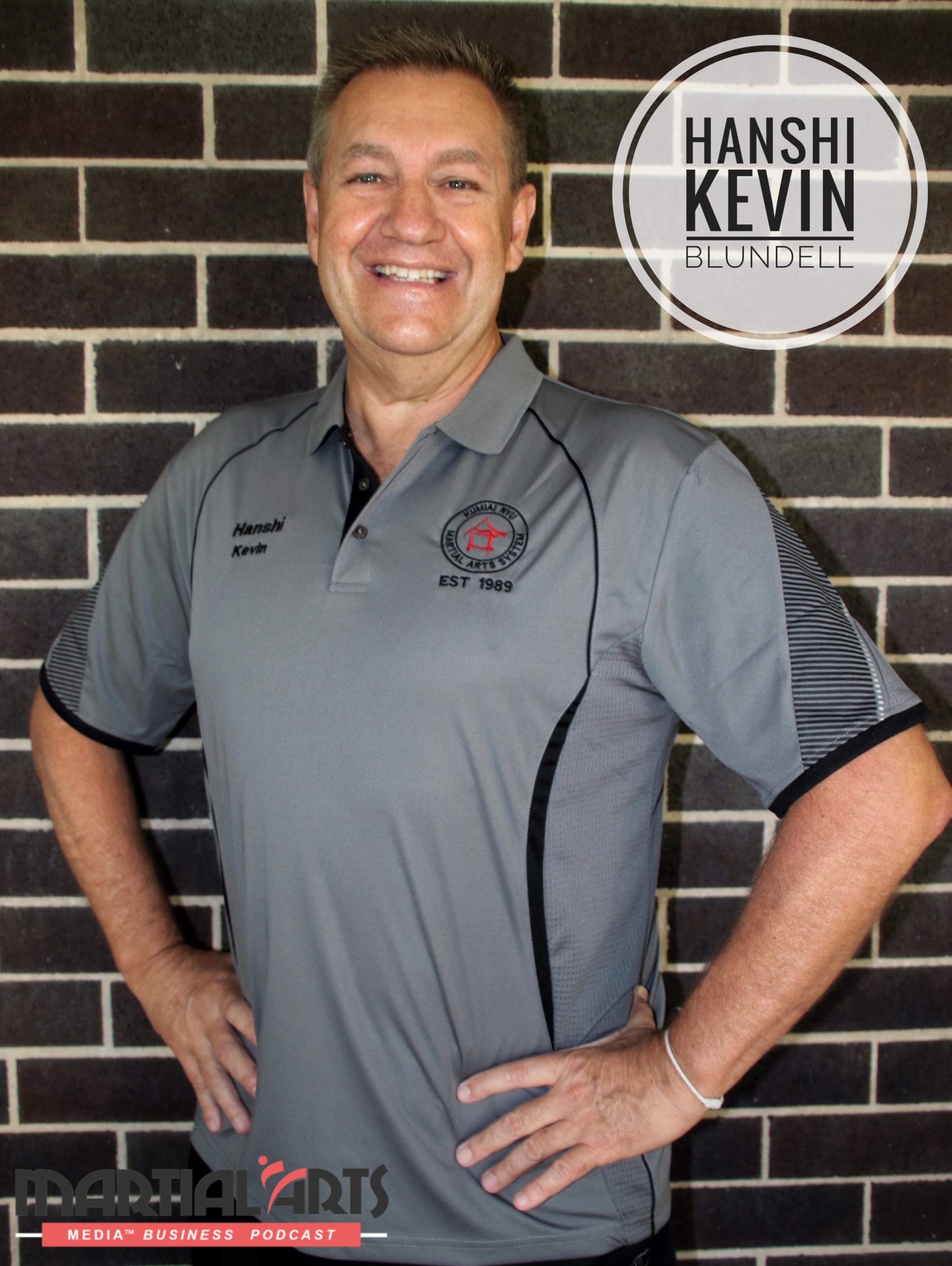

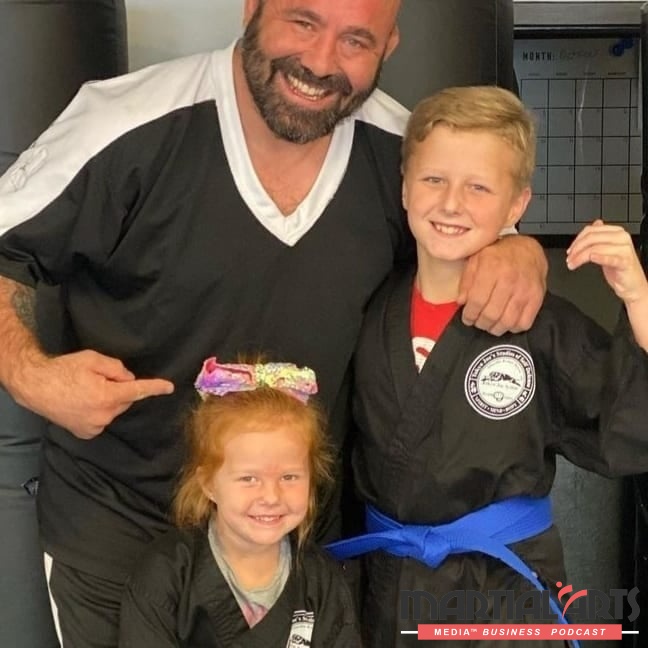


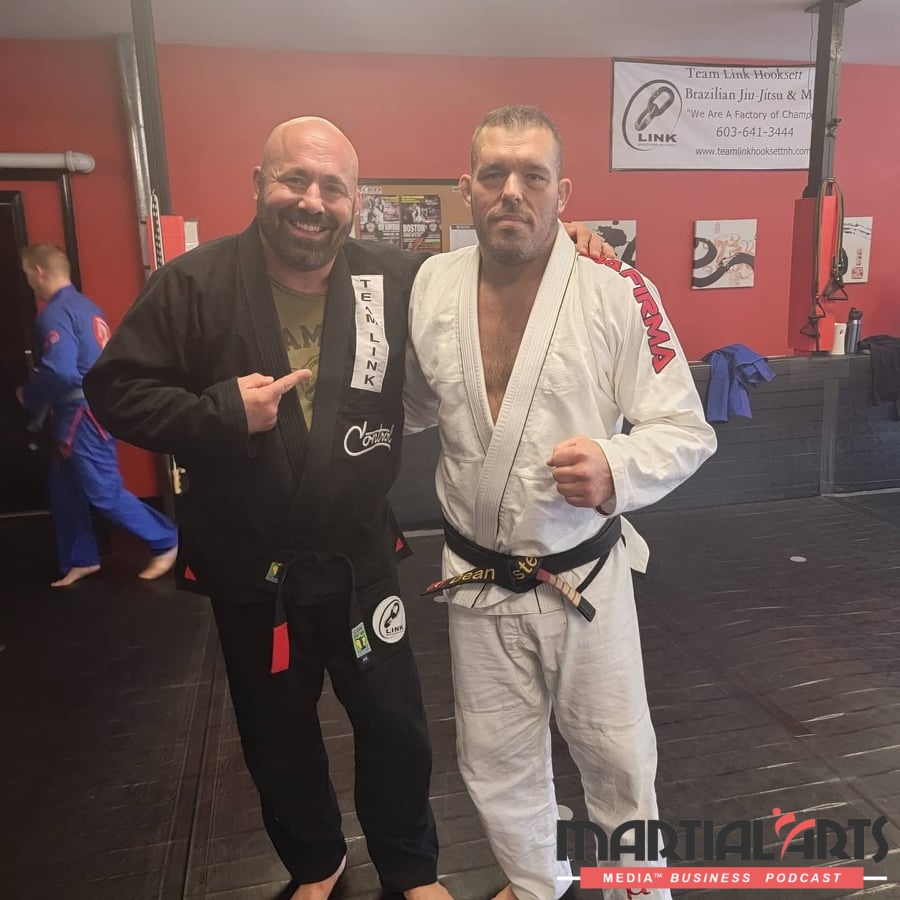



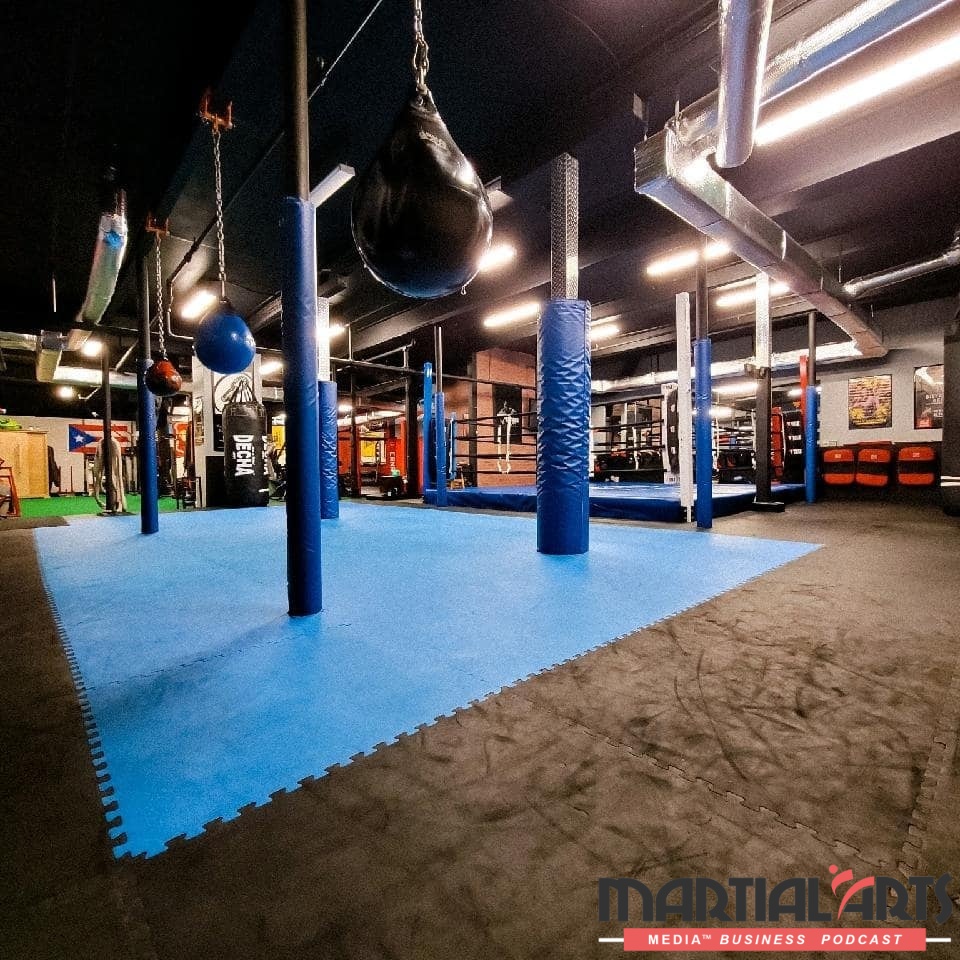













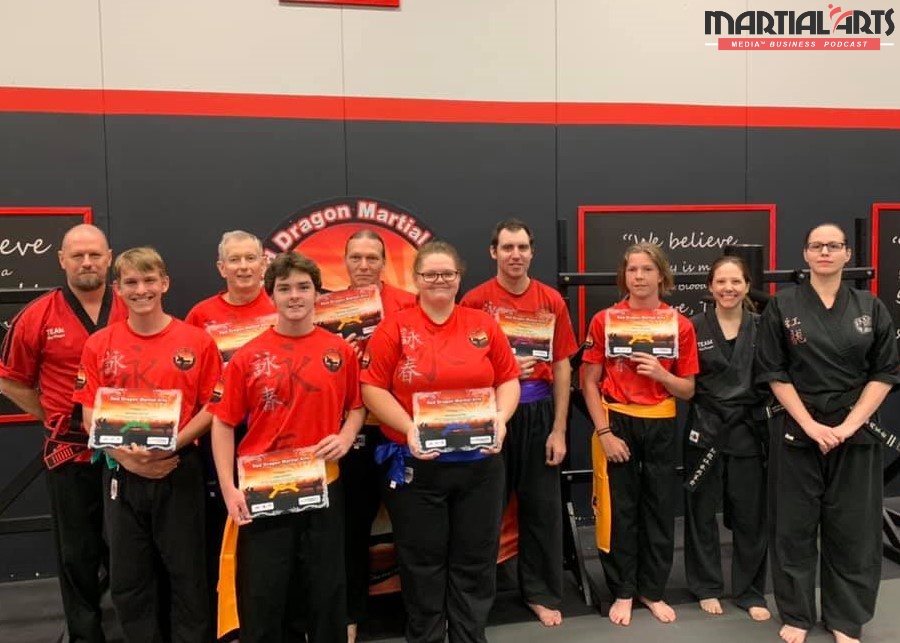
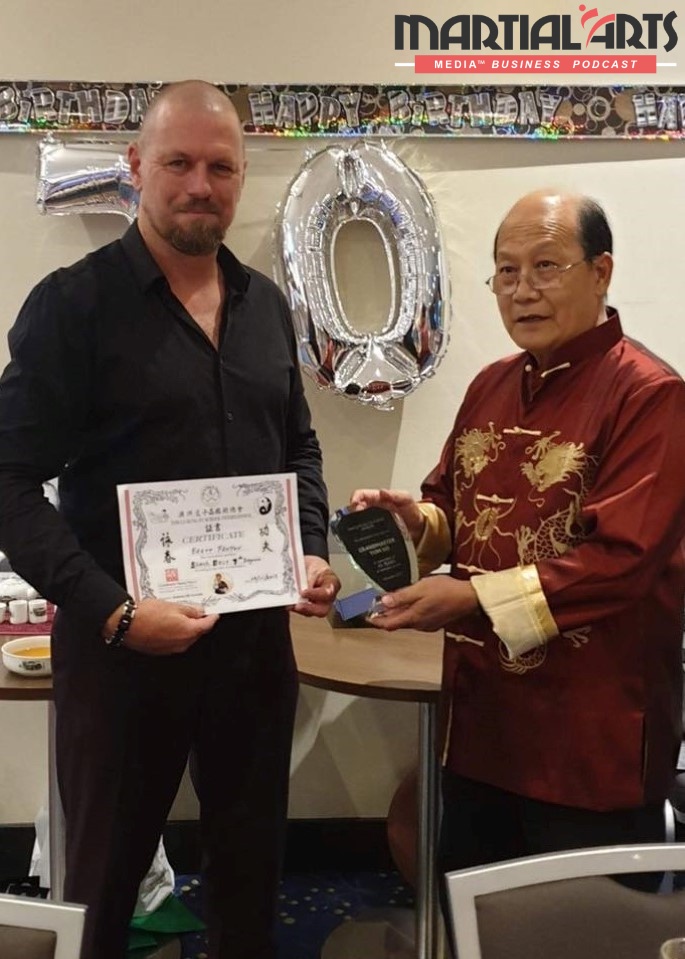

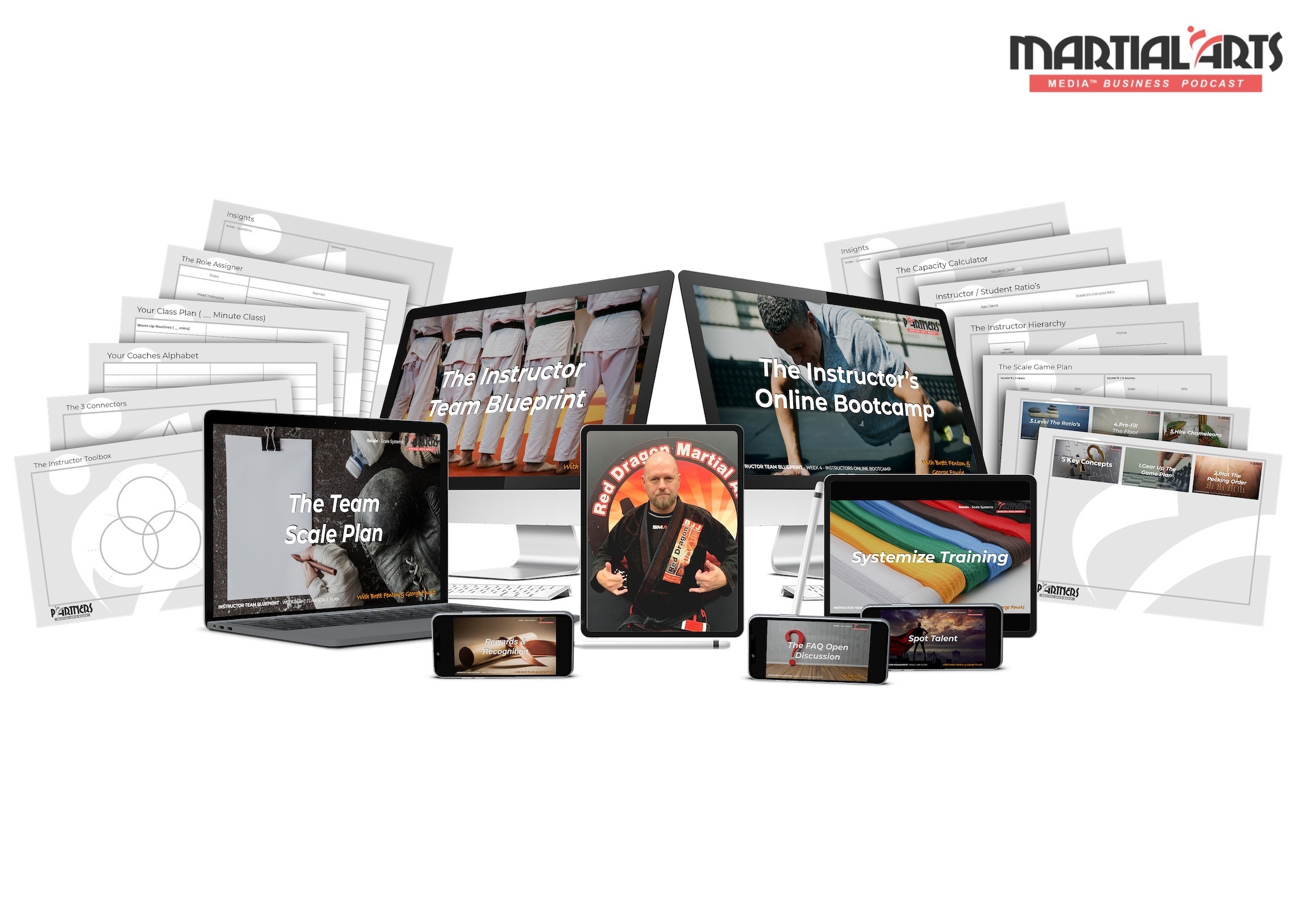
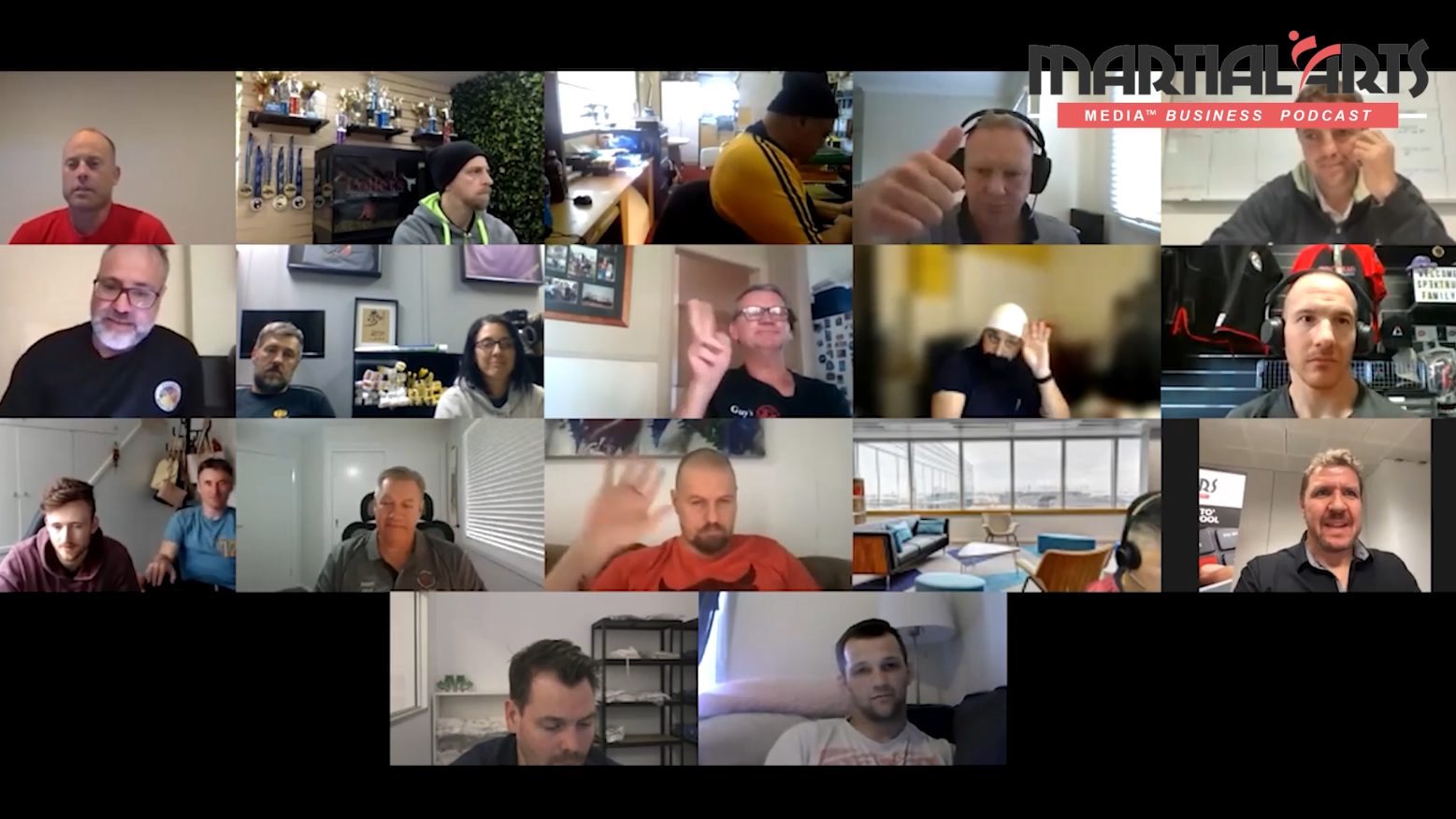



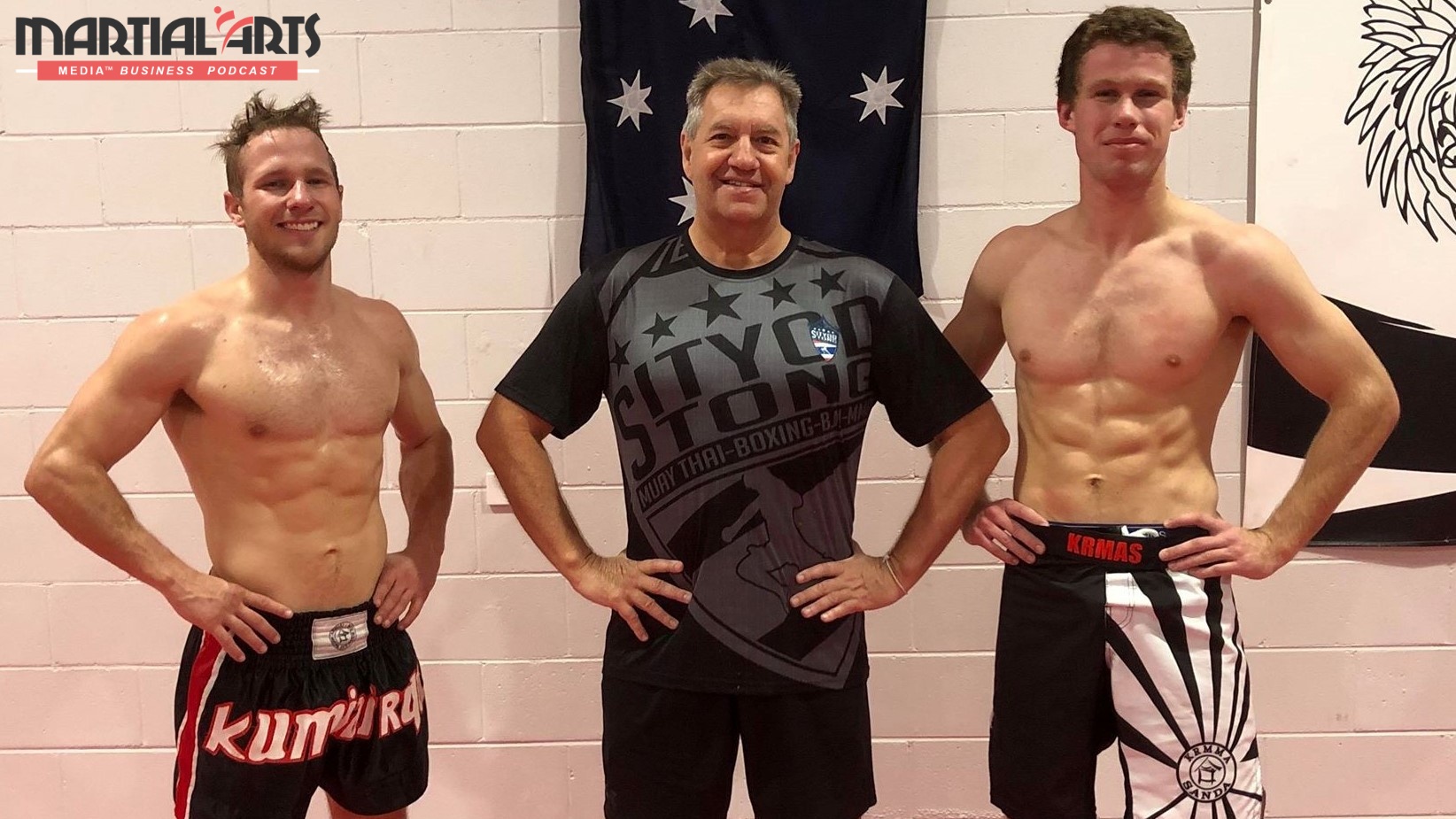
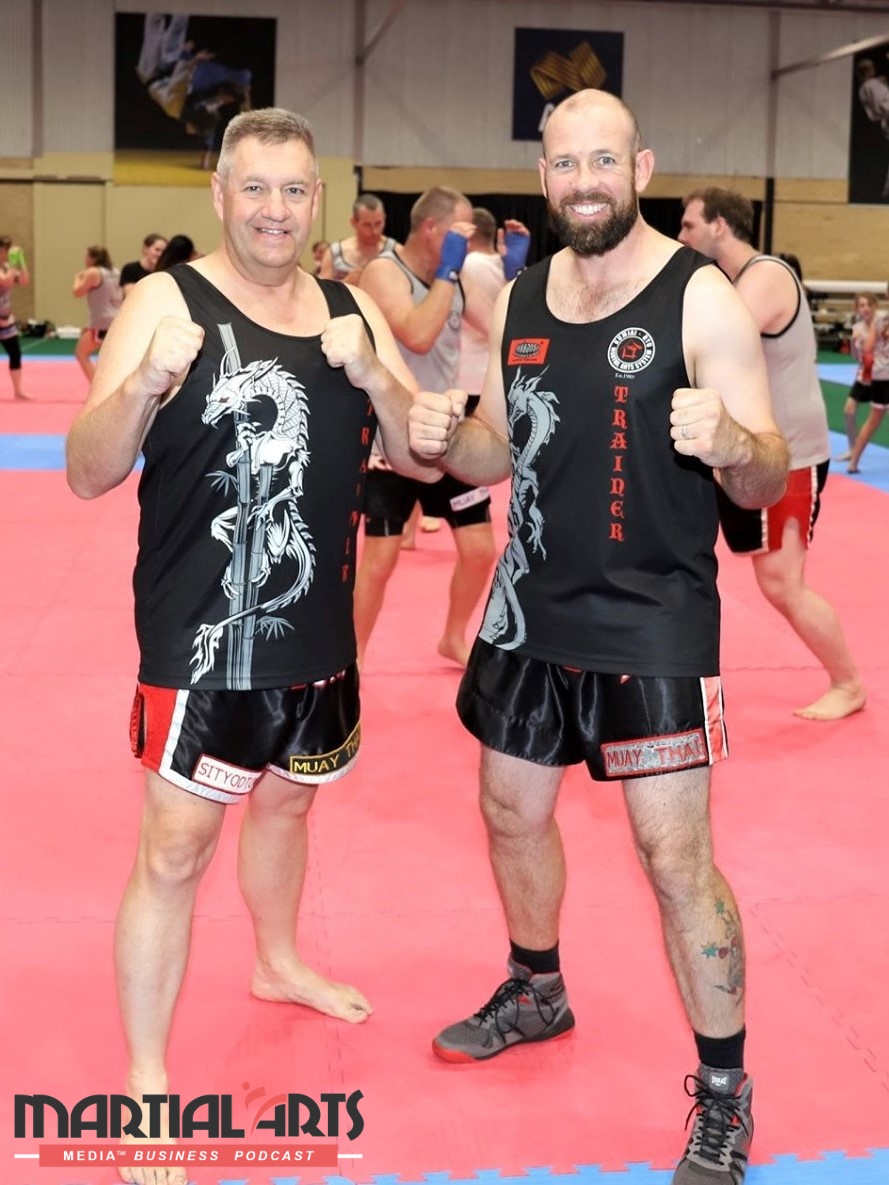
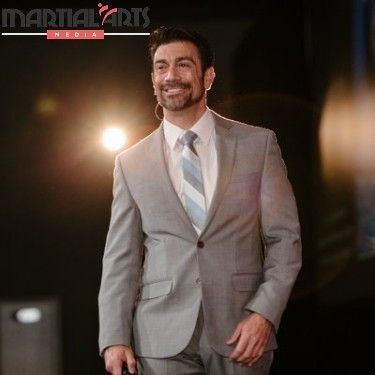
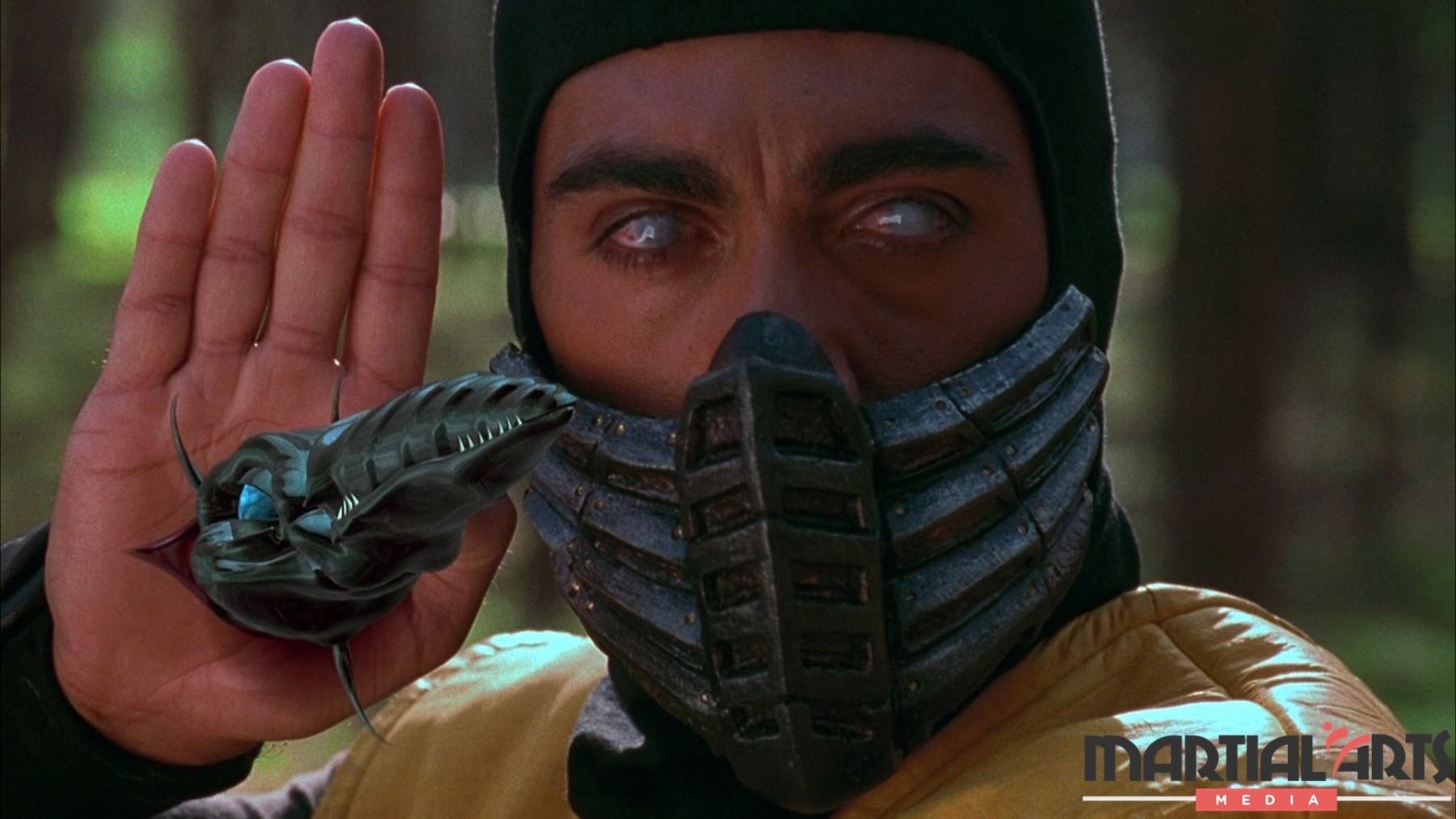

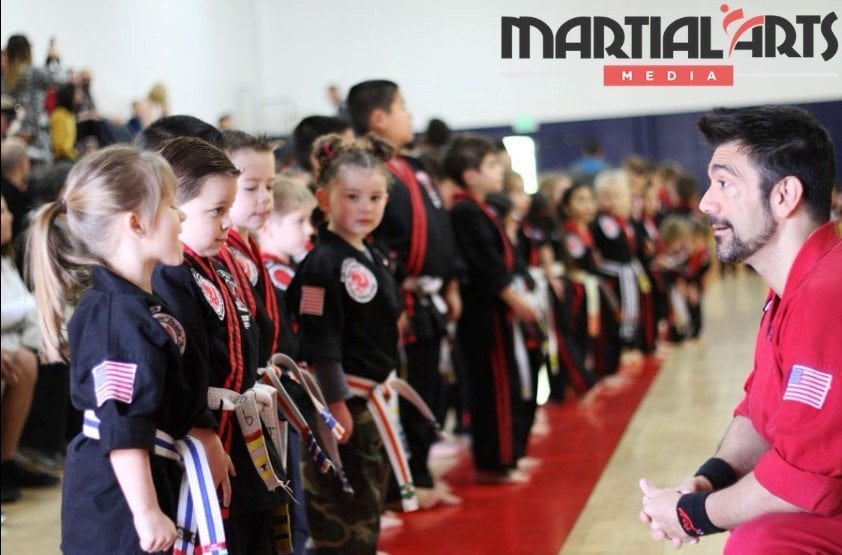
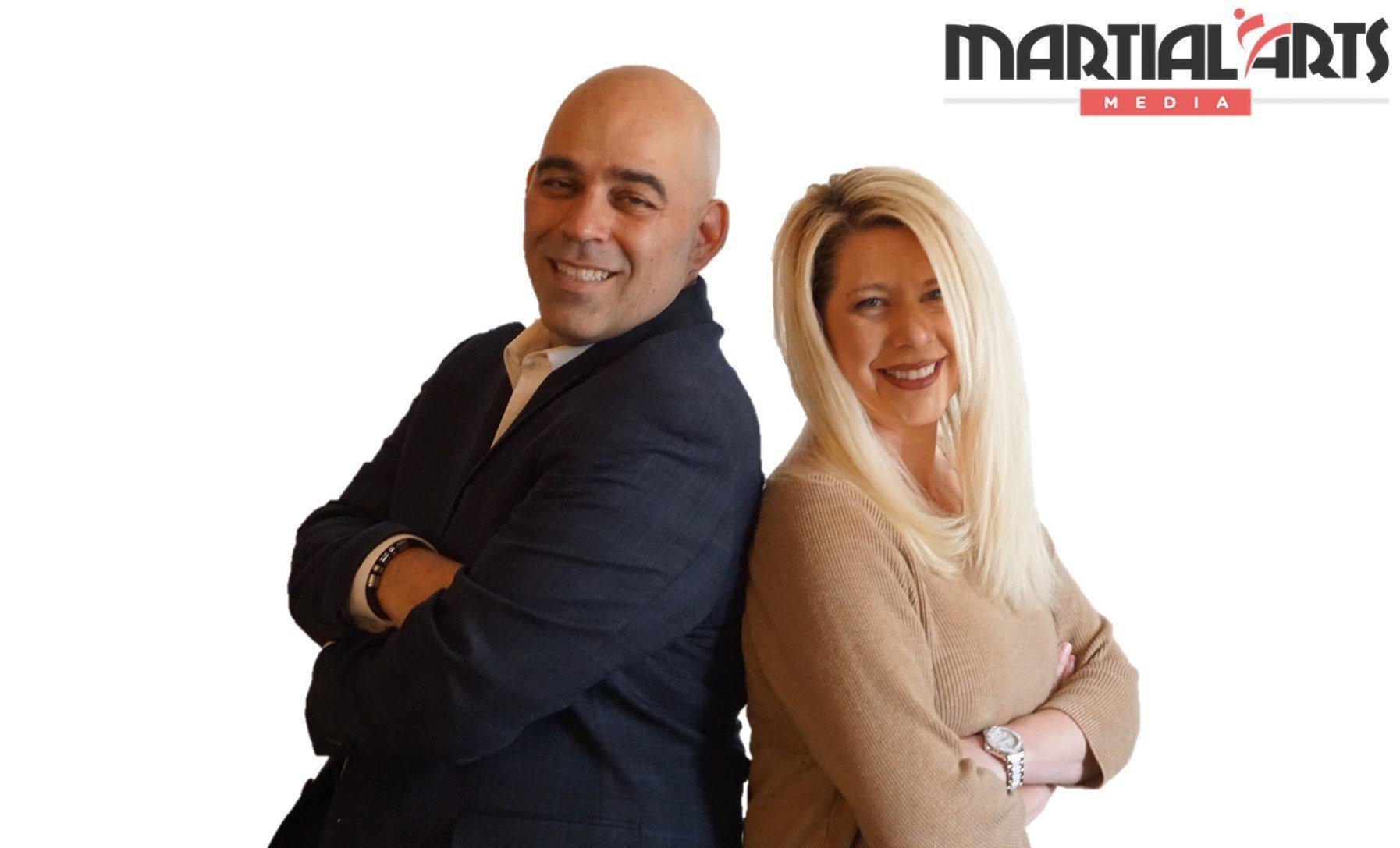
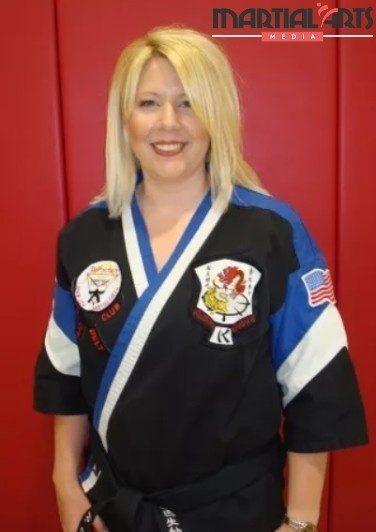
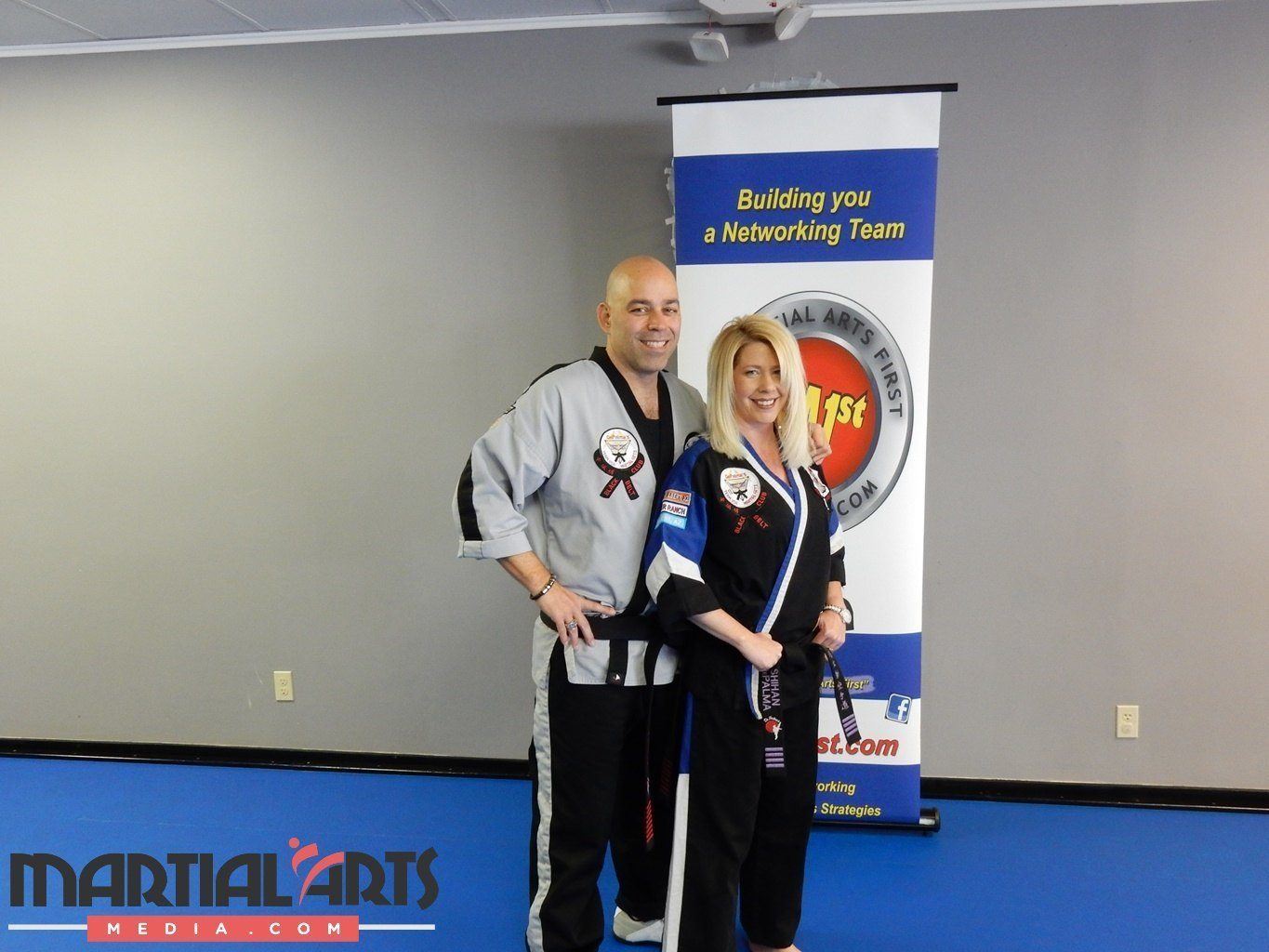
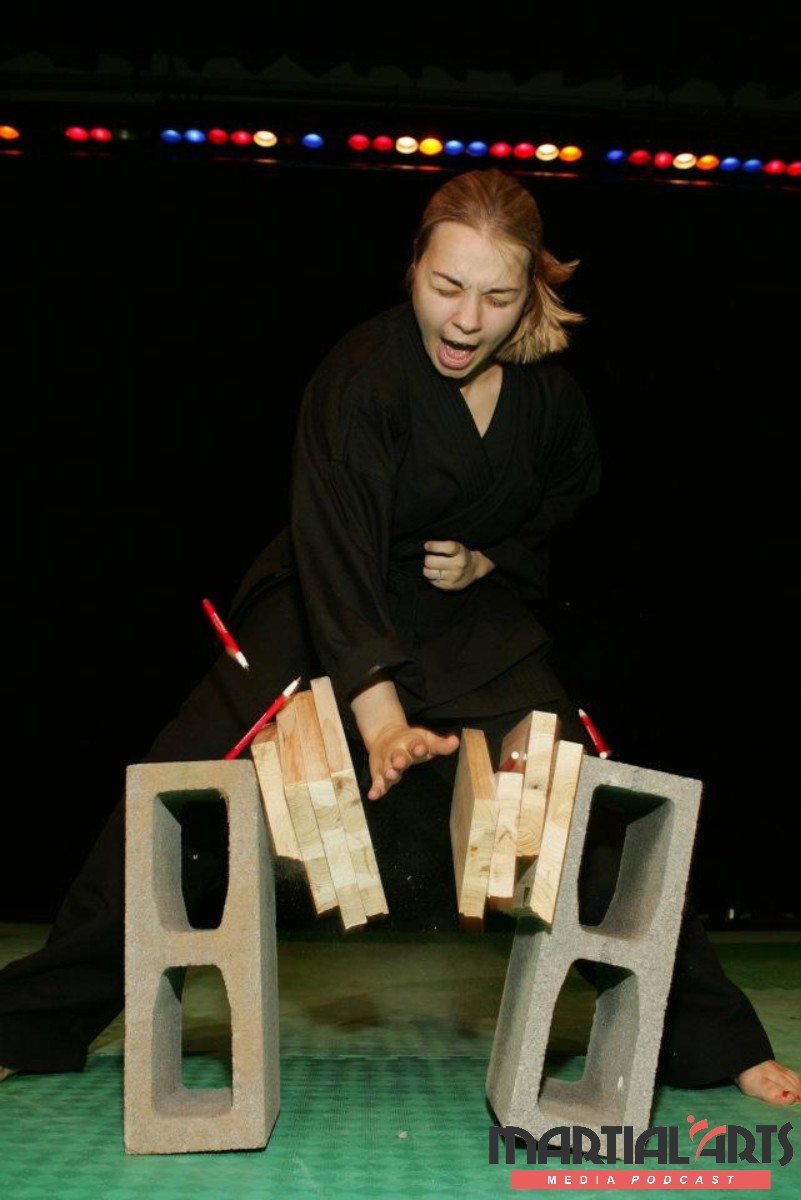
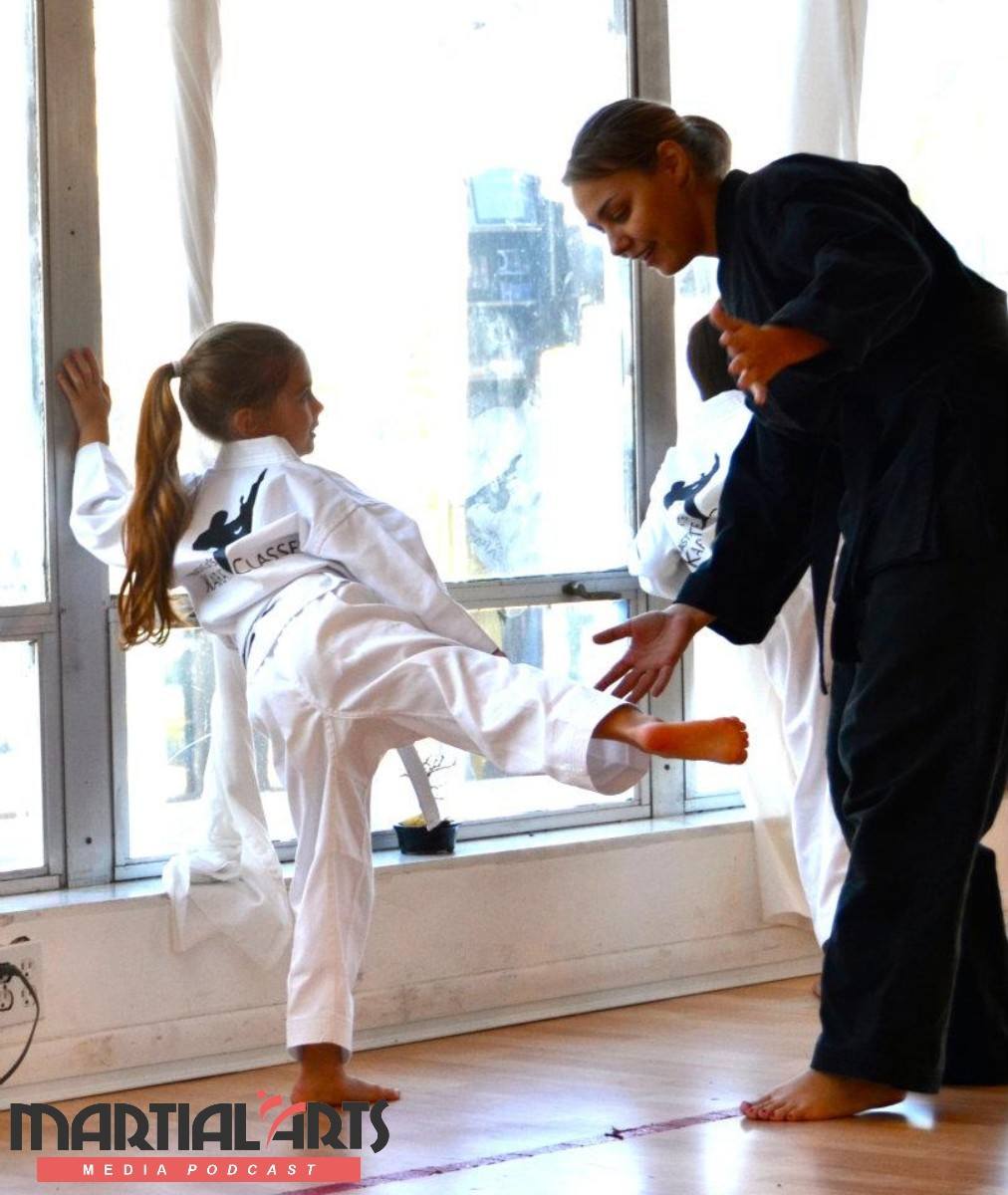 And a lot of it just comes down to listening and most of it is that the processes and the things that we use really come down to just communication. You know, so often, we’ll hear a parent wants to pull their kid out and typically, not listening to the reasons that they say at that point is the reason why so many people don't return back to martial arts. I was always in the unique position, because I've had so many former students come back to the training after three months, after six months, after six years, after breaks or periods of time that they wanted to return back and it's because I never stopped treating them as a member, even after they weren't there. So we continually kept in contact or connection or random phone calls here or there out of the blue, where I wasn't doing anything more than just being like, hey what's going on? Missed you, how have you been? You know, or getting to be able to keep that contact going.
And a lot of it just comes down to listening and most of it is that the processes and the things that we use really come down to just communication. You know, so often, we’ll hear a parent wants to pull their kid out and typically, not listening to the reasons that they say at that point is the reason why so many people don't return back to martial arts. I was always in the unique position, because I've had so many former students come back to the training after three months, after six months, after six years, after breaks or periods of time that they wanted to return back and it's because I never stopped treating them as a member, even after they weren't there. So we continually kept in contact or connection or random phone calls here or there out of the blue, where I wasn't doing anything more than just being like, hey what's going on? Missed you, how have you been? You know, or getting to be able to keep that contact going. As far as communication, I believe with training, if they're able to get up in front of a group and be a martial arts instructor, they can just as easily be the martial arts instructor to the parents in the lobby and build those relationships the same way. When there's a disconnect is that they think that the parents are no longer their students too.
As far as communication, I believe with training, if they're able to get up in front of a group and be a martial arts instructor, they can just as easily be the martial arts instructor to the parents in the lobby and build those relationships the same way. When there's a disconnect is that they think that the parents are no longer their students too.  You've got to show that you care, you've got to recognize that, oh – this person actually does have my best interest in mind. And if you can convey that, you're not going to have a problem then when that parent has a situation they want to… or like you've mentioned: when you drop the ball. I ordered you the wrong size belt, I got you your belt, but unfortunately, it came in 5 sizes too big and all this. Well have another one for you in the next 4 or 5 days, but here – use this one for now. They're going to overlook those kinds of things. It's definitely in our benefit as martial arts school owners and operators to make sure that we get to know our people and connect with them and recognize when these things happen. Because customer service is too late, that's overcoming objections and that's like, it's such a buzzword. It's such a sad way of trying to build things around something that's already gone, so see it before it happens, you've got to catch it before it happens.
You've got to show that you care, you've got to recognize that, oh – this person actually does have my best interest in mind. And if you can convey that, you're not going to have a problem then when that parent has a situation they want to… or like you've mentioned: when you drop the ball. I ordered you the wrong size belt, I got you your belt, but unfortunately, it came in 5 sizes too big and all this. Well have another one for you in the next 4 or 5 days, but here – use this one for now. They're going to overlook those kinds of things. It's definitely in our benefit as martial arts school owners and operators to make sure that we get to know our people and connect with them and recognize when these things happen. Because customer service is too late, that's overcoming objections and that's like, it's such a buzzword. It's such a sad way of trying to build things around something that's already gone, so see it before it happens, you've got to catch it before it happens.
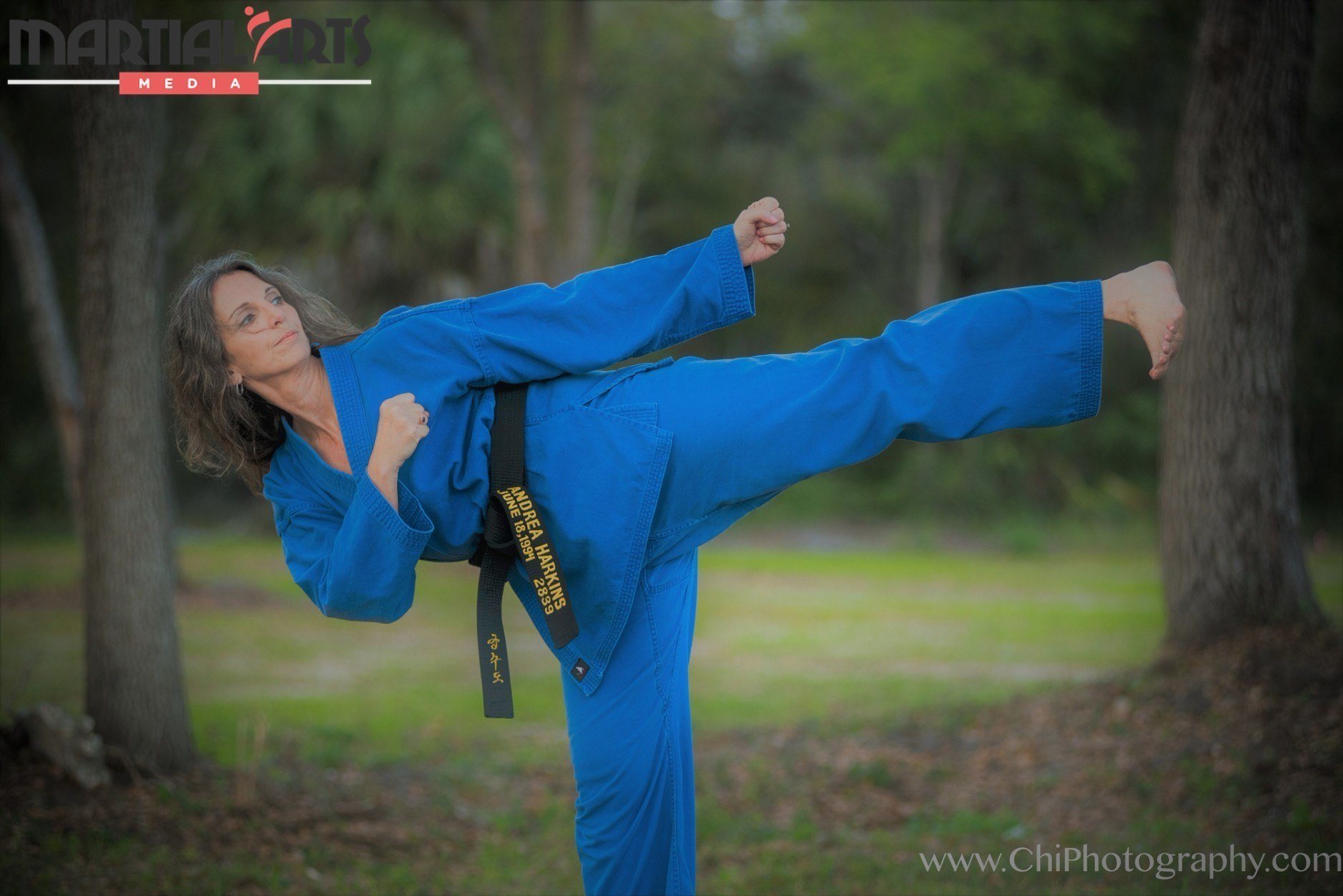

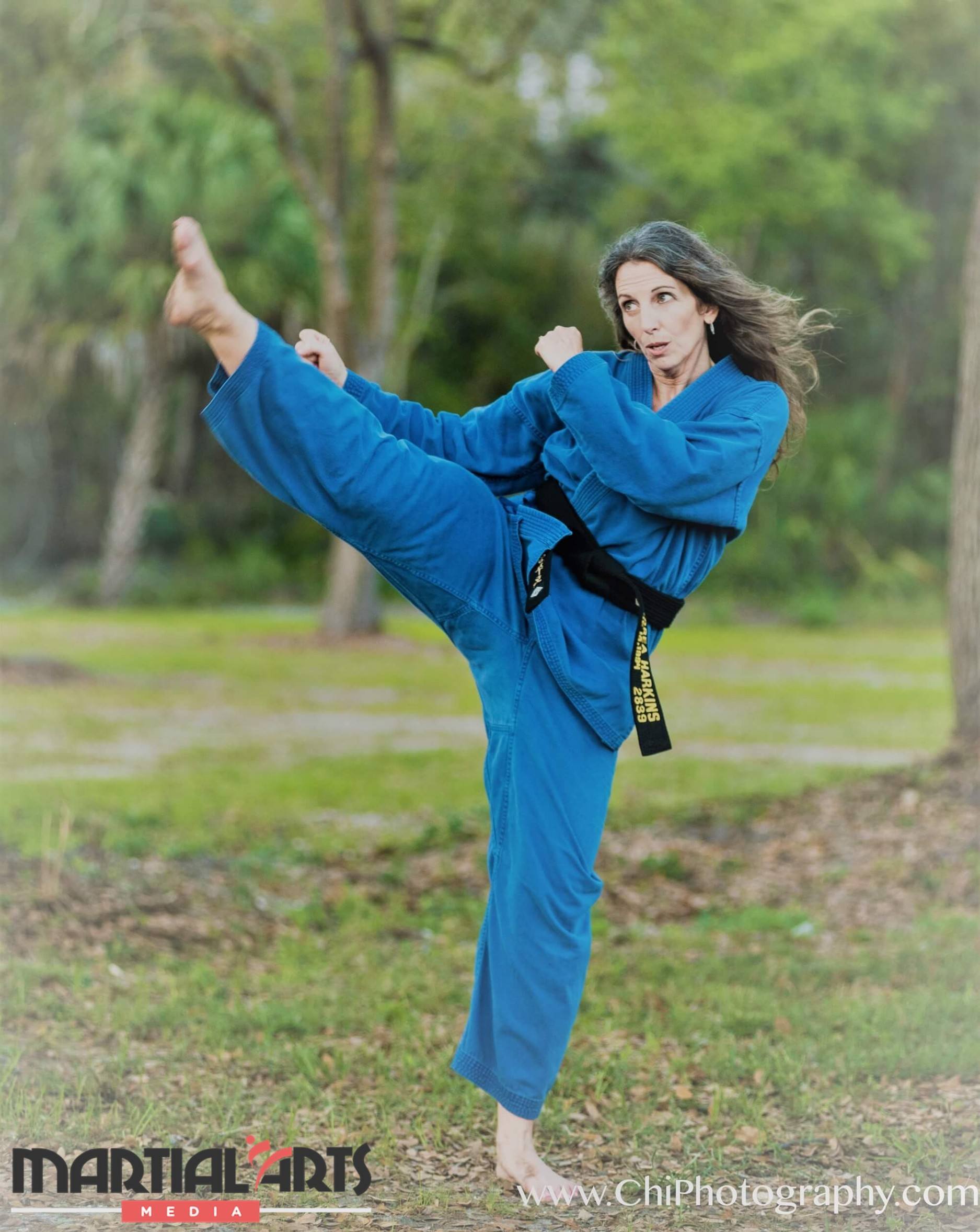 And I certainly have heard different stories from different women, who have had both good and bad experiences with being out there in the martial arts. I think what we have to remember is that men and women are different and this is just my perspective. And this is one of those things that I sometimes get backlashes on saying, but we are different. So we practice differently, we have a different mindset. We may learn the same things from the same instructors, but we see things a little differently. We’re mothers, we’re sisters, and we’re daughters. We have a different mindset overall. Yes, we can take all that away and go into a tournament, or go into a situation, a self-defense situation, really strip ourselves of those things for those moments. But in reality, that's who we are.
And I certainly have heard different stories from different women, who have had both good and bad experiences with being out there in the martial arts. I think what we have to remember is that men and women are different and this is just my perspective. And this is one of those things that I sometimes get backlashes on saying, but we are different. So we practice differently, we have a different mindset. We may learn the same things from the same instructors, but we see things a little differently. We’re mothers, we’re sisters, and we’re daughters. We have a different mindset overall. Yes, we can take all that away and go into a tournament, or go into a situation, a self-defense situation, really strip ourselves of those things for those moments. But in reality, that's who we are.



